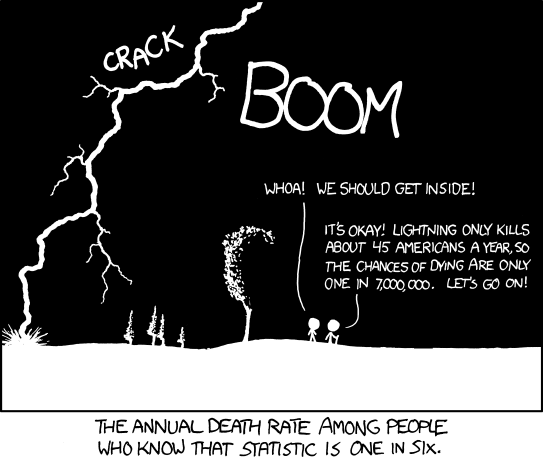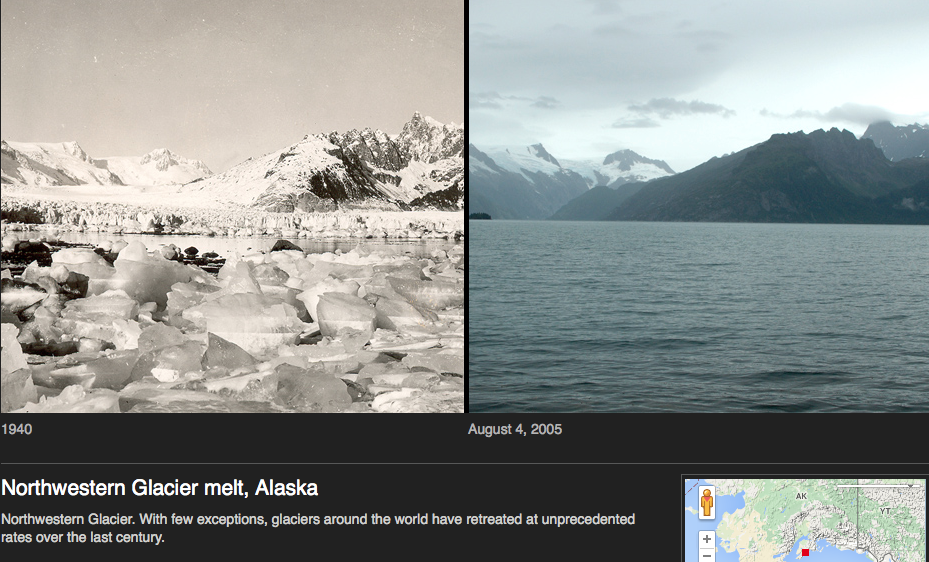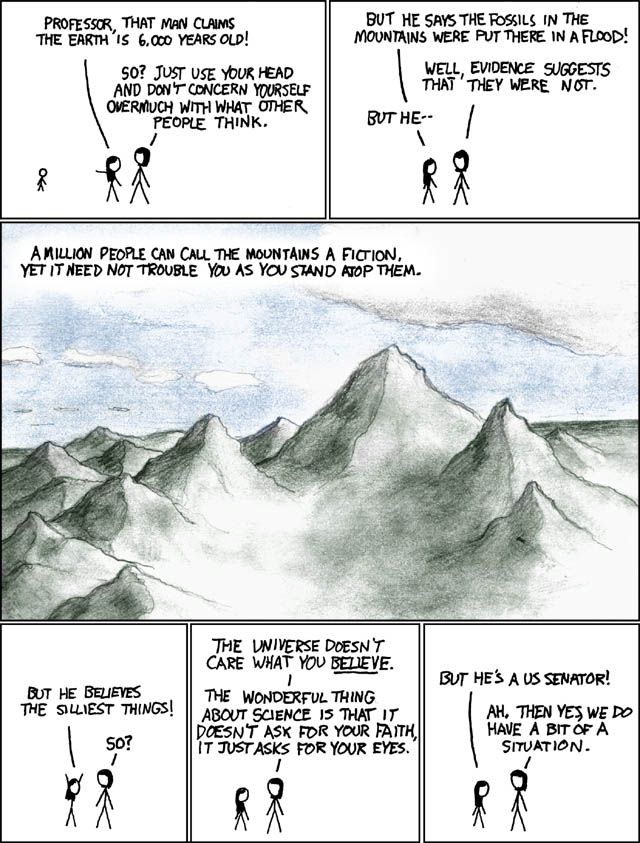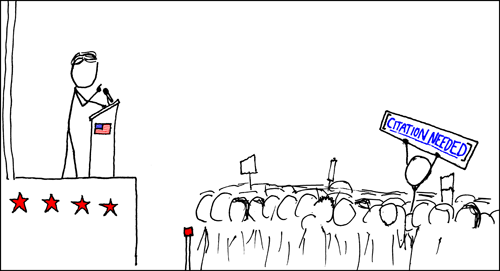20 July 2015
Peabody Coals World of Illusion
Posted by Dan Satterfield
Clayton Aldern at GRIST has a look at the world of climate denial through eyes smeared with coal dust, and it’s rather frightening. You almost have to ask yourself if they really believe this stuff. Even when you make the “Upton Sinclair adjustment” (“It’s nearly impossible to convince someone of something when their paycheck depends on it not being so”), you are still left with the equivalent of someone holding their ears, while running through the house, and all the while screaming “No,No,No!!!!; I refuse to believe your frightening facts!!”.
The comments from Peabody were sent earlier this year to the White House Council on Environmental Quality. They were citing the reasons against considering greenhouse gas emissions in an analyses conducted under the National Environmental Policy Act. In their comments, they dropped a load of every crazy, discredited, kooky reason that has ever been thought up in their objection. It actually makes entertaining reading, and for those who are not well versed on atmospheric/climate science,the truth is the opposite of what they claim. This is not arguable by anyone living in the world of fact and reason, and the people who wrote that are in some kind of strange woo-woo land. It’s actually scary how the mind can fool you, and this alone is why scientific method is so valuable.
This actually has gotten me to thinking about labeling this kind of tortured belief system, and while I have tried not to use the label science deniers very often here, It is necessary to come up with a description of people who believe this kind of misinformation. These people prefer to be called skeptics, but this is without doubt the wrong term. Science teaches skepticism, but it does not teach ignorance of data, experiment, and overwhelming evidence.
There is a good summary of this kind of thinking on the Rational Wiki entry for denialism. Below are some quotes from it:
Diethelm and McKee have identified five characteristics of denialists:[13]
- The identification of perceived conspiracies. This includes belief of corrupted peer review and inversionism (i.e., attributing some of one’s own characteristics and motivations to others).[14]
- The use of fake experts (often with the smearing of real experts).
- Selecting or cherry picking sources: picking the weakest papers or only ones that are contrary. Particularly worrisome is looking at only a single study, especially in medicine, as one study rarely conclusively proves something.[15]Others note that this includes anecdotal evidence[6] and quote mining.[16]
- Demanding impossible standards for research.
I’ve decided that from now on, when it is obvious that it’s crossed the line, I will use the term science denier to identify this kind of thinking. That means those who refuse to accept settled science on human evolution, or claiming the world is less than a few millions of years old are not skeptics but are science deniers. Congrats Peabody, you made the cut, but for the chemtrail and HAARP believers, you’re just plain crazy.
From the rational Wiki again is a good summary of the difference between denials and skepticism: (my highlighting)
Denialism vs. skepticism
It is possible to conflate skepticism and denialism, as proponents of both seem to “deny” that something exists until they’re convinced otherwise. Denialists themselves often claim to be skeptics, and very rarely self-identify as denialists. But to say that a skeptic is a homeopathy denier and that a Holocaust denier is skeptical would be wrong.
While both have a negative or critical tone, the positions are different in how they view and acquire and interpret data. Skepticism is a method while denialism is a position. The opposite of “skeptic” is not “believer,” and it is possible to embrace something while remaining skeptical. This is an essential part of the ethos of science as it suggests new experiments to strengthen or falsify a proposition. Skeptics look at experiments to ensure that they were performed properly with the appropriate controls, proper data analysis and so on. The skeptical method involves examining all data and coming to a conclusion that it produces. Denialists, on the other hand, view data slightly differently, as a means to a predetermined end – minimizing its importance if it goes against their opinion, highlighting it if it supports them, or just plain misrepresenting it for their own purposes. Skeptics keep an open mind until data shows that a hypothesis is invalid, while denialists start with the conclusion and look for support. To put it another way, denialism embraces confirmation bias while skepticism seeks to avoid it.
One blogger put it this way:
|
“”Skeptics also ask questions, but a big difference between skeptics and denialists is that skeptics listen to answers and regard evidence as paramount. Denialists tend to see the piles of evidence against their claim, and see a conspiracy theory to perpetuate a hoax. But skeptics accept good evidence. Skeptics have a lot of respect for science, and denialists are usually out to undermine scientists working in the field where they have an agenda. Denialists will wear the costume of scientific thinking, but they usually show a piss-poor understanding how … the accumulation of studies and data work. (For instance, they promote the idea that if one study can be found to be flawed, this brings down the whole theory, as if the other hundreds of studies don’t count.)
|
And another blogger:
|
“”Carl Sagan popularized the skeptical mantra: “extraordinary claims require extraordinary evidence.” Authentic scientific skepticism is an intellectual and scholarly pursuit that requires honesty, rationality, logic, and evidence. Real skeptics do not cling to absurd conspiracy theories for which there is no evidence, nor do they engage in obfuscation, misrepresentation, data fabrication, smear campaigns, or intimidation tactics. These are the methods of deniers.[21]
|






 Dan Satterfield has worked as an on air meteorologist for 32 years in Oklahoma, Florida and Alabama. Forecasting weather is Dan's job, but all of Earth Science is his passion. This journal is where Dan writes about things he has too little time for on air. Dan blogs about peer-reviewed Earth science for Junior High level audiences and up.
Dan Satterfield has worked as an on air meteorologist for 32 years in Oklahoma, Florida and Alabama. Forecasting weather is Dan's job, but all of Earth Science is his passion. This journal is where Dan writes about things he has too little time for on air. Dan blogs about peer-reviewed Earth science for Junior High level audiences and up.